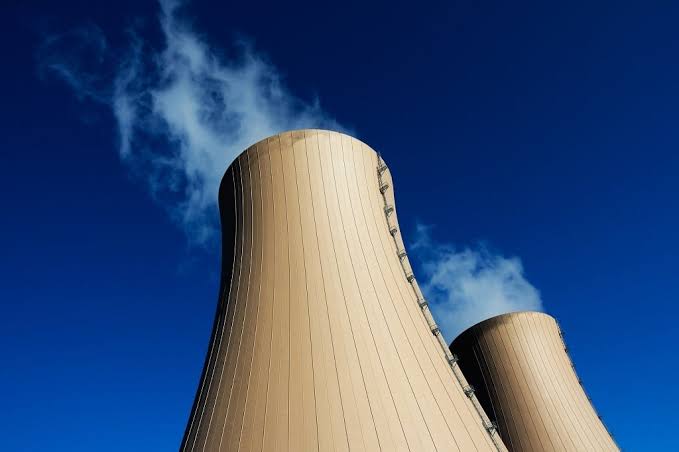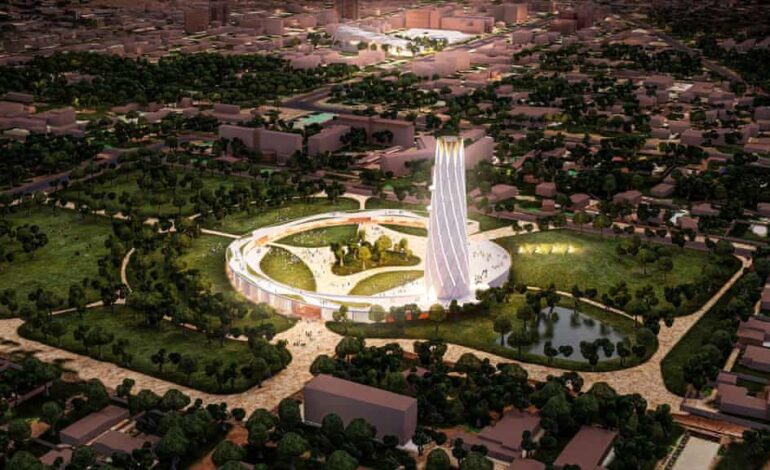
South Africa is exploring partnerships with Russia and Iran to expand its nuclear power capacity, a move that could intensify tensions with the United States.
The country is seeking to add 2,500 megawatts of nuclear power to alleviate chronic power shortages and transition to greener energy sources. However, aligning with Russia and Iran may complicate its relationship with Washington, especially after the expiration of a key energy agreement.
Shifting Nuclear Alliances
South Africa is home to Africa’s only nuclear power plant, Koeberg, and is eager to enhance its nuclear energy capacity. Minister of Mineral and Petroleum Resources, Gwede Mantashe, emphasized that South Africa will consider any country offering the best deal, without excluding Russia or Iran. “We can’t have a contract that says Iran or Russia must not bid, If they are the best in terms of the offer on the table, we’ll take any country,” Mantashe said.

This open-door approach to potential partnerships comes as South Africa’s previous nuclear agreement with the U.S., known as a Section 123 Agreement, expired in December 2022. The agreement allowed the export of U.S.-made nuclear fuel and equipment to South Africa. Although technical negotiations for a new deal have concluded, legal formalities remain unresolved, leaving the future of U.S.-South Africa nuclear cooperation uncertain.
U.S. concerns and diplomatic strains
Tensions between the U.S. and South Africa have escalated since President Donald Trump froze aid to the country, citing concerns over a controversial land expropriation law. Trump also accused South Africa of strengthening ties with Iran for commercial, military, and nuclear collaborations, further straining the relationship. Although the South African government has denied any nuclear-related cooperation with Iran, the U.S. remains cautious.
The U.S. State Department has declined to comment on whether Russia or Iran could assist South Africa in expanding its civilian nuclear capacity. This uncertainty has added to the complexity of renewing the Section 123 Agreement, which is crucial for South Africa’s state utility, Eskom, to source reactor fuel for the Koeberg plant.
Legal hurdles and delayed plans
Plans for a nuclear project tender, initially scheduled for last year, faced delays due to legal challenges from the Democratic Alliance, now part of South Africa’s coalition government. The absence of a new U.S. nuclear deal poses a challenge for Eskom, as it may struggle to source reactor fuel for Unit 1 from U.S.-based Westinghouse. In contrast, Unit 2 continues to receive fuel from France’s Framatome.

Russia’s strategic move in Africa
As U.S. influence in Africa wanes, Russia is aggressively expanding its presence in Africa’s nuclear energy sector. Moscow has signed nuclear cooperation agreements with 15 African countries, positioning itself as a key player in addressing Africa’s energy needs. This is not just an economic strategy but a geopolitical one, aimed at strengthening Russia’s global influence.
South Africa’s interest in partnering with Russia aligns with Moscow’s ambitions in Africa. If finalized, a nuclear agreement with Russia would add to its growing list of energy partnerships on the continent, further challenging U.S. influence in the region.
Implications for South Africa and the region
South Africa’s potential alliances with Russia and Iran come at a crucial time as it seeks to solve its energy crisis and transition to cleaner power sources. However, these partnerships could lead to increased diplomatic tensions with the U.S., affecting other aspects of bilateral relations, including trade and aid.
The situation also highlights the shift in Africa, where emerging powers like Russia and China are filling the vacuum left by traditional Western allies. As South Africa navigates this,, its choices will not only impact its energy future but also influence the broader balance of power in the region.
With the upcoming nuclear project tender and ongoing negotiations, all eyes are on South Africa’s next move. Will it turn to Russia and Iran for nuclear power, or will it find a way to renew its partnership with the U.S.?
RELATED:








